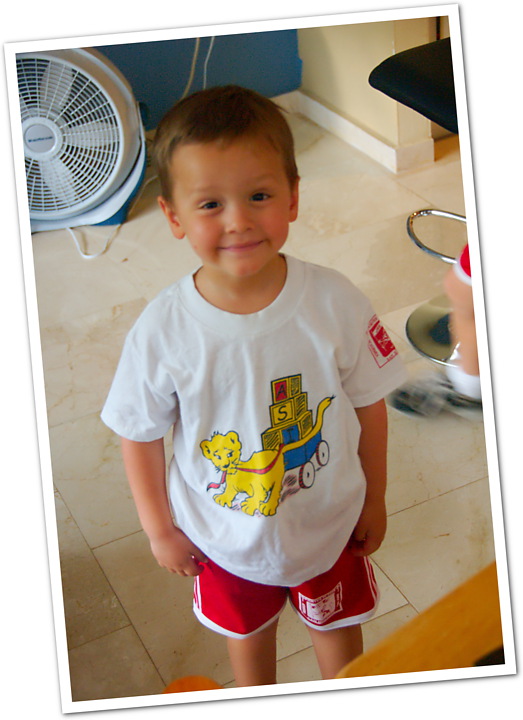I introduced my kids to a dessert treat that I had as a kid, the ice cream float. The most typical, I believe, is the root beer float, a scoop of ice cream served in a glass of root beer. In Puerto Rico, it’s a little tough to find root beer, but we improvised with strawberry soda. Sounds yummy doesn’t it? I had talked about the tradition with the kids during the day, building anticipation, talking about how I enjoyed this as a kid, and how my mother had enjoyed when she was a kid. Once it came time to experience the tradition my four niños were as effervescent as the carbonated beverage.
I scooped one nice ball of vanilla ice cream into each of their glasses and poured the soda over it. The mixture bubbled up in a thick pink head of sweet creamy foam. Armed with a long handled spoon they dug into their drinks. “Oooo, Daddy,” they squealed, “IT’S AWESOME!”
It was Javier, however, who had the most to say about it. His experience seemed to go beyond the visceral and deeper into the larger questions. It was obvious he had been thinking about it all day.
“Daddy, this was a tradition with Grandma Weez, right?”
“Yes, Javier, I had ice cream floats as a kid. We used to really enjoy them, and Grandma Weez loved them when she was a little girl.”
“Um, I don’t know how to say this, Daddy. If you just say it, it’s a lie, right?”
“What do you mean, Javier? I don’t understand what you are getting at.” Javier, furrowed his brow and chewed his lip. His thought, it seemed, was more sophisticated than his vocabulary.
“Um, I’m not saying it right. If you just say it, it’s not a tradition, right? You have to do it.”
“Oh, I see what you’re saying. I hadn’t thought about that,” I said, pondering the depth of the inquiry. It was a really profound question. Are the traditions passed down from one generation to the next rendered null if they are no longer practiced? If you just tell stories about them, they begin to die, or in Javier’s explanation, become lies. “Well, Javier, there is something called oral tradition, that is, those things that are stories that are told from one generation to the next. It’s a form of entertainment and cultural history that one generation passes to the next. It’s kinda like TV or movies. You see them, listen to them, and then you tell others about them.”
I continued, “But I do see your point, if the practice of telling a story or actually participating in a tradition, doing it, becomes something you just talk or reminisce about, something as a curious bit of nostalgia, then I guess you would say it’s not a tradition anymore. You are one smart little cookie. I hadn’t through about that before.”
I have been thinking about the question he raised since yesterday, and I believe I will continue to think about it, but it seems to me that nostalgia is not a substitution for tradition. That little Javier is his mommy’s son, a little anthropologist in training. Keep those questions coming, Javier. Sometimes the most profound thoughts are actually simple questions.


